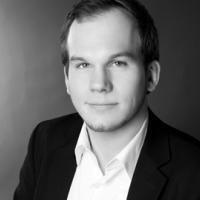
As the Arctic Summer College (ASC) approaches the end of its 6th year, it can reflect on just how far the program has come since its first class in 2011. The program has retained its core commitment to furthering multidisciplinary learning on a variety of Arctic issues by engaging with experts and exchanging views against a backdrop of a lively learning environment. This year's one-of-a-kind eight-week international virtual campus covered topics including shipping and marine governance, energy, environmental impact assessments, science, security, and indigenous communities in the Arctic. However, the 2016 Arctic Summer College witnessed a major expansion which has further augmented its vision of preparing Arctic leaders to best preserve biodiversity and ecosystem health in the Arctic while building a unique Arctic network.
While past ASCs have focused on engaging with Arctic professionals, this year was the first time when the ASC offered two distinct programs – one for Arctic professionals and one for students focusing their studies on Arctic issues. The addition of the student component of the program included the development of an Arctic curriculum that encouraged students to apply what they learned from the course and webinars on a weekly basis. Students also participated in additional webinars to expand their knowledge on Arctic topics. In particular, the students gained a truly unique perspective of how the Arctic Council operates by taking on the roles of Senior Arctic Officials, Permanent Participants, journalists, and scientific Experts in ASC’s first Arctic Council Simulation. In the simulation, students worked to address the problem of black carbon and methane emissions in the Arctic by following what actually took place on the issue at the 2015 Arctic Council Ministerial Meeting in Iqaluit.
Recognizing the benefits of having both professional and student programs running simultaneously, this year also launched the first ASC mentor-mentee program. This program matched members of our professional and student programs together based on mutual interests. The program has met with great success as professionals and students work together to facilitate stronger professional development, exchange, and collaboration not only across disciplines and nations, but also generations.
As we look forward, the ASC program is excited to bring a few exceptional participants from both programs with us this October to the Arctic Circle Assembly in Reykjavík, Iceland. There, participants will present their final papers as part of the ASC Break-out Session. We are looking forward to the opportunity to both highlight the work of our participants and showcase the importance of the ASC program while in Iceland.
The ASC program continues to grow and improve to address the ever more complex and dynamic needs of not only the Arctic itself, but the people who are working every day to protect the Arctic environment. It is a bright future for the ASC program, and it is looking forward to welcoming the next class of ASC participants in 2017.
The Arctic Summer College 2016 webinar series is available on YouTube Channel Ecologic Arctic Summer College.
The 2016 Arctic Summer College built on the successful experience in the years from 2011 to 2015.



